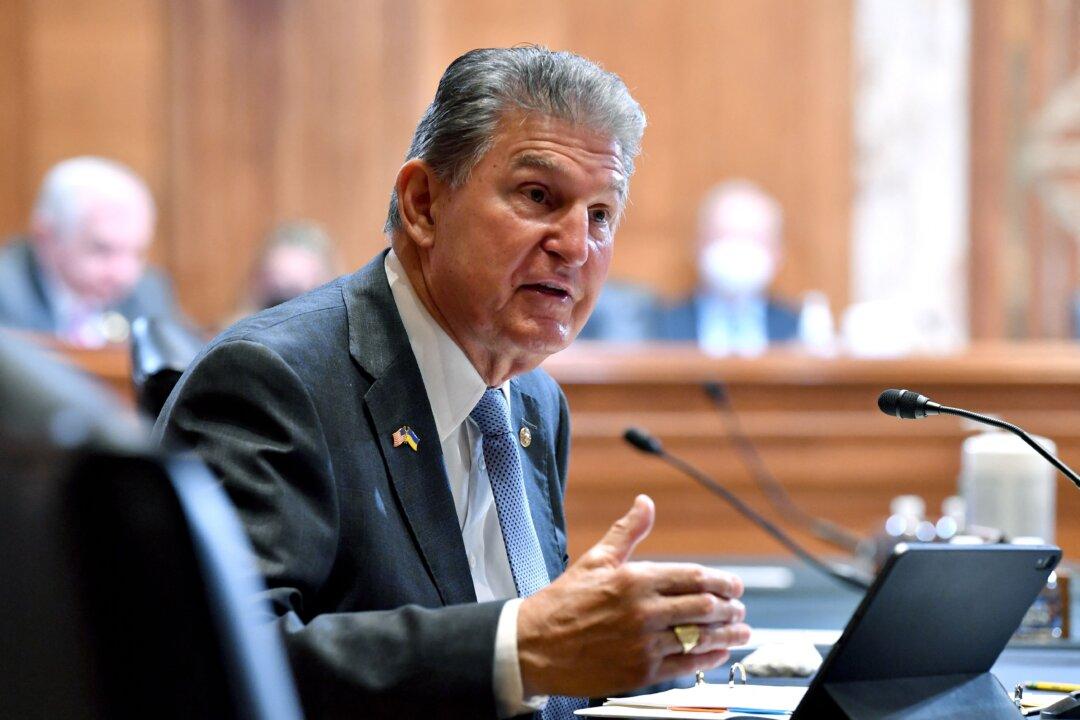Sen. Joe Manchin (D-W.Va.) is repeating his calls for the United States to increase its energy production after the Organization of Petroleum Exporting Countries plus Russia (OPEC+) made a decision to reduce its own output.
Since President Joe Biden took office in January 2021, the cost of gasoline and other energy sources to consumers has seen a substantial uptick.





